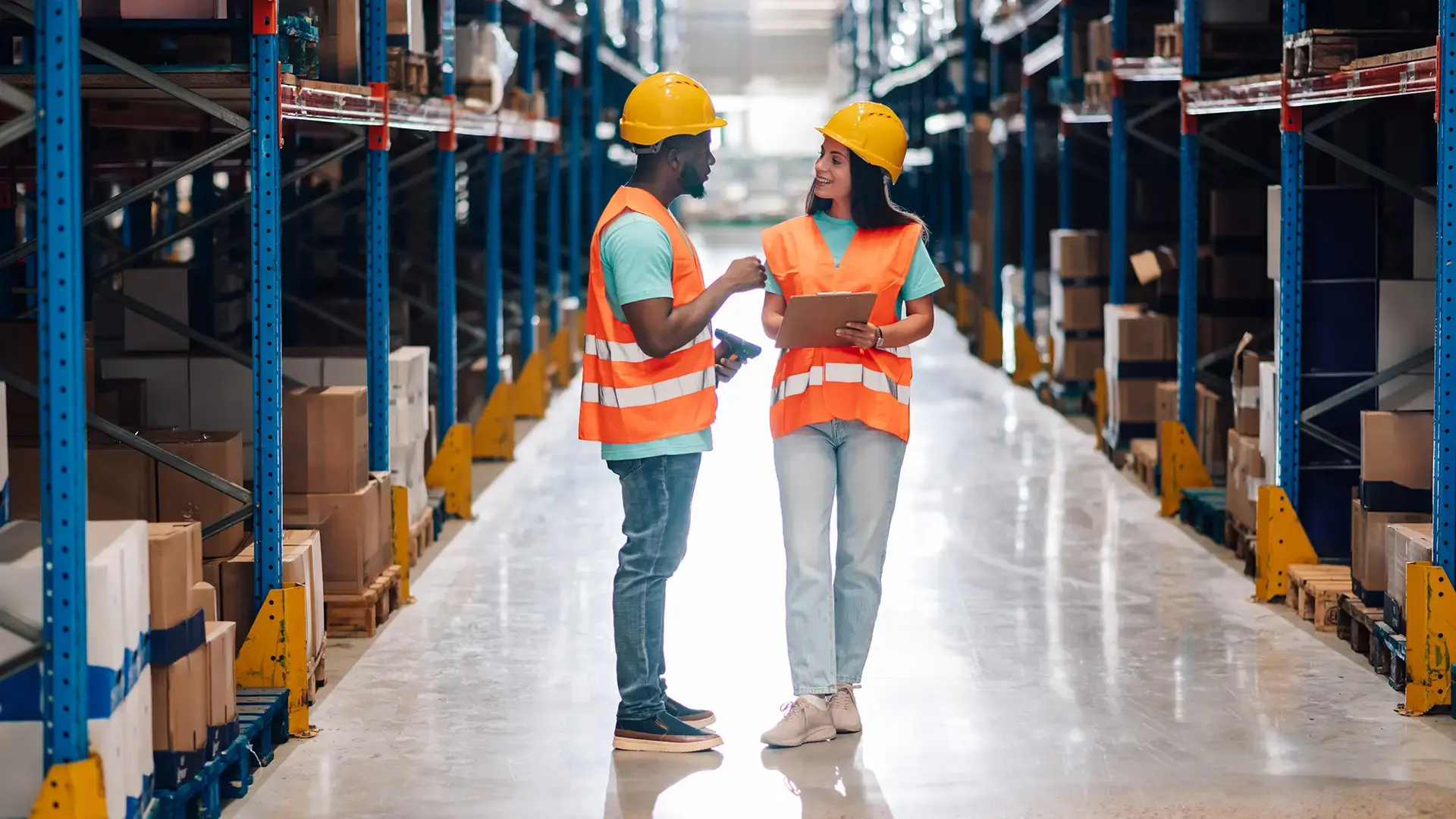As businesses increasingly try to balance profitability with environmental and social responsibility, some trends in sustainable solutions are beginning to rise. Ethical sourcing, renewable energy use, and waste reduction, for example, are some of the fastest-growing sustainable supply chain solutions now being implemented across industries today.
Though adopting sustainable solutions may seem like a nice-to-have rather than a requirement, neglecting them poses significant risks, from reputational damage to regulatory penalties and operational disruptions. So, as 2025 progresses, prioritizing sustainability is no longer an optional luxury—it’s a competitive necessity.
Trend #1: Innovative Blockchain Technology for Transforming Supply Chains
Blockchain technology revolutionizes supply chain management by providing unparalleled transparency, traceability, and security. By leveraging blockchain, businesses can monitor every stage of the supply chain, from raw material sourcing to final product delivery. This technology enhances trust among stakeholders, reduces fraud, and ensures compliance with regulatory standards.
In the long term, blockchain fosters stronger relationships with customers and partners by demonstrating accountability and ethical practices, ultimately driving brand loyalty and market differentiation.
Trend #2: Generative AI in Supply Chain Optimization
Generative AI also transforms supply chains' operations by facilitating predictive analytics, demand forecasting, and real-time decision-making. Essentially, by analyzing vast amounts of data, AI can optimize a supply chain’s inventory management, streamline logistics, and reduce operational costs.
For businesses that adopt generative AI, this means being able to respond faster to supply disruptions and market shifts, giving them an obvious competitive edge. Over time, this technology improves efficiency and enhances customer satisfaction, making it a cornerstone for sustainable and agile supply chains.
Trend #3: Scope 3 Reporting for Strategic Foresight
Scope 3 emissions—or indirect emissions across the supply chain—are increasingly under scrutiny as businesses work to meet sustainability goals. To address this, many businesses have begun reporting on Scope 3 emissions to gain valuable insights into their environmental impact and highlight areas for improvement.
Ultimately, this transparent reporting also better aligns companies with consumer demands for sustainability. For this reason, companies prioritizing Scope 3 reporting are better equipped to anticipate challenges, drive innovation, and position themselves as leaders in environmental responsibility.
Trend #4: IoT for Enhanced Efficiency and Visibility
Another sustainability trend supply chains should note is the integration of the Internet of Things (IoT). IoT reshapes supply chain solutions by connecting devices and systems for real-time monitoring and data collection. Within a sustainable supply chain management strategy, this means reduced inefficiencies and enhanced visibility across the supply chain.
By embracing IoT, businesses can optimize asset utilization, reduce downtime, and improve energy efficiency. In the long term, IoT standardization drives cost savings and sustainability while providing the agility to adapt to evolving market demands.
Trend #5: Focus on Workforce Development
As supply chains become more technology-driven, utilizing technologies such as AI and IoT and investing in
human workforce development have also become critical. After all, providing employees with the skills they need to operate these advanced technologies ensures seamless adoption and maximizes a business’s ROI.
Also, fostering a continuous learning culture makes employees feel engaged, reduces turnover, and builds a resilient workforce. Therefore, companies prioritizing workforce development are better positioned for long-term success, as they can attract and retain top talent while driving innovation.
Trend #6: Supplier Diversity and Ethical Procurement
A final change growing in urgency in 2025 is supplier diversity and ethical procurement. By diversifying suppliers, businesses reduce risk, foster innovation, and strengthen community ties. Conversely, ethical procurement ensures compliance with labor and environmental standards, building trust with stakeholders and consumers.
In the long term, prioritizing supplier diversity and ethical sourcing enhances brand reputation, drives customer loyalty, and contributes to a more sustainable and equitable global economy.
Optimize Your Supply Chain for This Year and Beyond
As supply chain challenges continue to evolve, adopting sustainable practices is no longer a choice—it’s a necessity for long-term success. Businesses that embrace these and other trends for a more sustainable supply chain will not only mitigate risks but also drive efficiency, innovation, and resilience.
Companies that fail to act, however, risk falling behind in an increasingly regulated and consumer-conscious market. To stay ahead, we invite you to explore our comprehensive training programs or consider becoming a manufacturing partner or AFFLINK distributor today.
About AFFLINK, LLC.
As “The Home of the Independent,” AFFLINK connects more than 250 manufacturers of Industrial Packaging, Facility Maintenance, Food Service, Safety, and Office Supply solutions with more than 300 independent distributors. AFFLINK (www.afflink.com) is the critical link, offering clients innovative products - and for distributors - market expertise and improved profitability, all of which is fuelled by leading-edge information technology.





